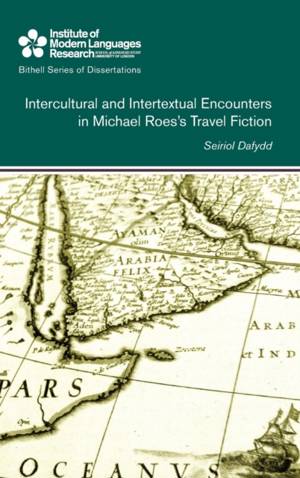
- Afhalen na 1 uur in een winkel met voorraad
- Gratis thuislevering in België vanaf € 30
- Ruim aanbod met 7 miljoen producten
- Afhalen na 1 uur in een winkel met voorraad
- Gratis thuislevering in België vanaf € 30
- Ruim aanbod met 7 miljoen producten
Zoeken
€ 27,95
+ 55 punten
Omschrijving
This book investigates a specific aspect of travel literature - the fictional travel novel - and one practitioner of that sub-genre - the contemporary German author Michael Roes (b. 1960). The analysis focuses on two main areas of research. The first concerns Roes's representation of intercultural encounters: how does Roes conceive and present an encounter between representatives of different cultures? And what constitutes a successful encounter, if such a thing exists? The second area of interest in this study concerns Roes's intertextual methodology. This study identifies those intertextual references that are of greatest significance and examines how and why Roes refers to other writers and their texts as he composes his own. Finally, this study identifies whether a connection exists between Roes's engagement with interculturality in all its facets on the one hand and his utilization of intertextuality on the other. In each case the intertextual processes underpinning the novels are shown to be a vital element in the way Roes approaches questions that fascinate above all contemporary European society and dominate the media: questions regarding identity, (homo-)sexuality, race and racism, gender, and relations between the West and Islam.
Specificaties
Betrokkenen
- Auteur(s):
- Uitgeverij:
Inhoud
- Aantal bladzijden:
- 236
- Taal:
- Engels
- Reeks:
Eigenschappen
- Productcode (EAN):
- 9780854572427
- Verschijningsdatum:
- 17/04/2015
- Uitvoering:
- Hardcover
- Formaat:
- Genaaid
- Afmetingen:
- 156 mm x 234 mm
- Gewicht:
- 508 g

Alleen bij Standaard Boekhandel
+ 55 punten op je klantenkaart van Standaard Boekhandel
Beoordelingen
We publiceren alleen reviews die voldoen aan de voorwaarden voor reviews. Bekijk onze voorwaarden voor reviews.











